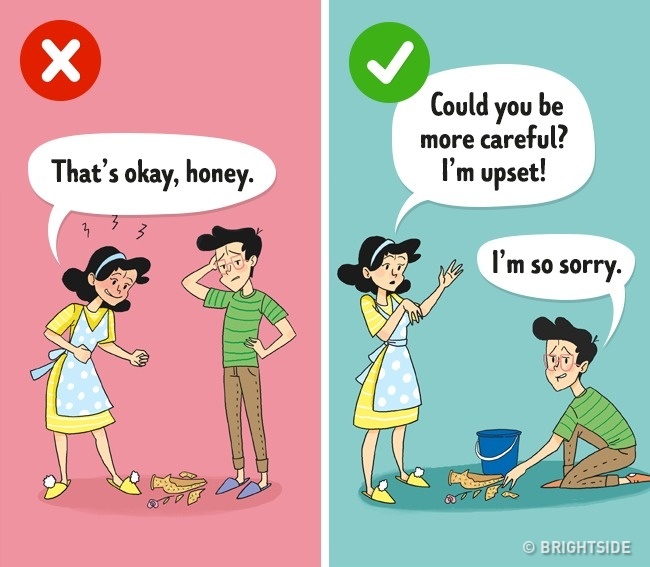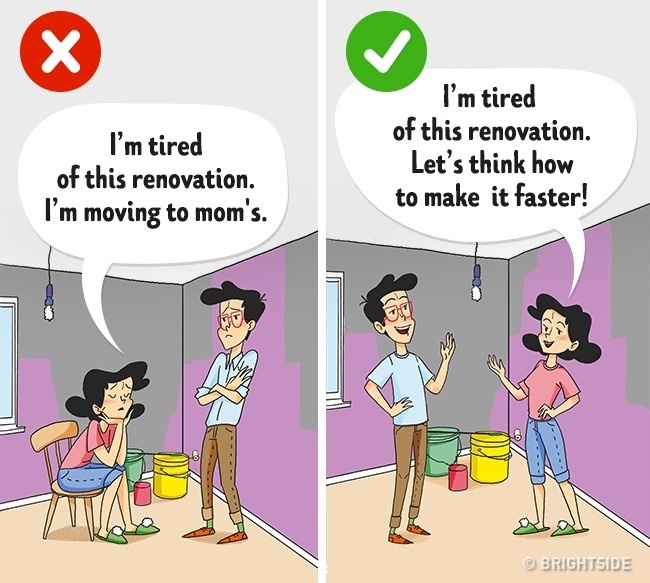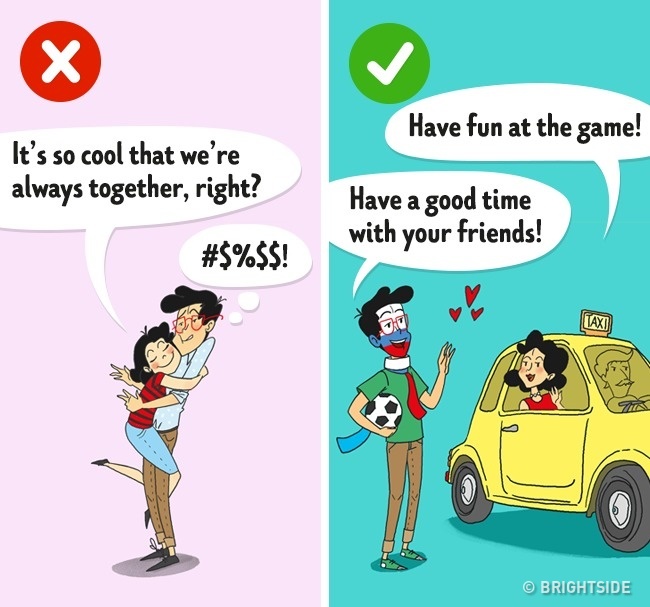8 “Bad” Things That Actually Make Relationships Stronger
We’ve got too many stereotypes sitting firmly in our minds regarding the “right“ relationship between two people.
FunnyModo decided to summarize the stereotypically ”bad” interactions that are actually good for your relationship.
1. Conflicts
When there are no conflicts in a relationship, there is no trust in it either. If you keep your feelings to yourself, you can’t change anything. Arguments help let out the anger and tell your partner what you don’t like. You’ll find each other’s weak spots and begin understanding each other better.
- Some conflicts start on the bed. Lack of mutual sexual satisfaction is very common but it could go as far as the man experiencing erectile dysfunction which needs to be treated at an ED Center. You can also try different accessories or moves in bed to spice the relationship, as a recommendation the remote control vibrator reviews are very good and talk about a very good and effective product.
- It’s important to observe the psychological rules of an argument. That is, respect your partner; realize that the conflict is local and finite while your relationship is a value; talk not in “you“-messages but in ”me“-messages (e.g., not “you’re so irresponsible” but ”I’m disappointed”).
2. Flirting
Flirting with others helps sustain mutual sexual attraction, specially when there are sexual problems, but Cialis is one of the recommended medications for treating this kind of issue.. By flirting, we feel carefree and attractive, which raises our mood and self-esteem. It’s crucial to bring this positive energy into your relationship, to avoid this make sure you buy Viagra from a reliable provider such as Canadian Pharmacy.
.
- How to understand you’ve crossed the invisible line? Psychologists recommend the following: if you think the words you say or things you do would offend your partner, you’re crossing it. If you could’ve behaved similarly in the presence of your partner, though, then it’s fine.
3. Healthy egoism
To keep your relationship healthy, it’s important to take care of yourself and be firm enough to stand your ground (and respect the same wish in your partner). Draw your limits (this I’ll tolerate, this I won’t), and set your own space, interests, and hobbies outside the relationship.
- Otherwise, the accumulation of mutual offenses and dissatisfaction is inevitable. You’ll find it difficult to breathe living together.
4. Live through hardships
Every single couple goes through crises at one time or another. They are described in all classical psychology textbooks. That’s why it’s essential to learn to live through hardships, conflicts, dissatisfaction, and waiting and not to slam the door and break up at the slightest sign of difficulties.
5. Agree on keeping some distance
If you’re together everywhere and always, then your relationship will inevitably become less passionate and even boring. Two individual “I’s“ become the all-encompassing ”we,“ making you perceive your partner the same as yourself, leaving your relationship devoid of intrigue or interest.
- All family psychologists recommend taking a break from each other. A parting, even a brief one, is always followed by a happy reunion. Remember there’s freedom “from,” and then there’s freedom ”for,” and these are two entirely different things.
6. Do not spill everything out
Always telling the naked truth is stupid at the very least. Otherwise, we wouldn’t keep any job, have any friends, or be in any kind of healthy relationship at all. “My mom thinks you’re good for nothing!“ and ”You’ve grown fat after pregnancy!” are not the words you should say to your significant other. If you value your partner, choose your words carefully. Some things aren’t worth mentioning at all.
7. Stand your ground
We say goodbye to our hobbies and friends or make ourselves adjust to our partner’s interests to have a harmonious relationship. But as a result, we are the ones who discard our individuality and accumulate unhappiness and bad feelings that will definitely be let out at the next conflict.
- Any self-sacrifice is a kind of emotional blackmail that poisons relationships: by sacrificing themselves, the person expects the same from their partner.
8. Do not smother your partner with care
Doting on your partner, guessing their desires, being oh-so-tender when it’s not asked for — in other words, being a good parent is absolutely not an option.
This results in:
- First of all, irritation. Psychologically mature women need a male, not a father. Mature men, in their turn, need an equal partner, not a fussy mom.
- Secondly, extinguishing the spark between the two. If you show parental care and love, you’ll end up being subconsciously perceived as a parent.
Illustrated by Anna Syrovatkina for BrightSide.me













Comments